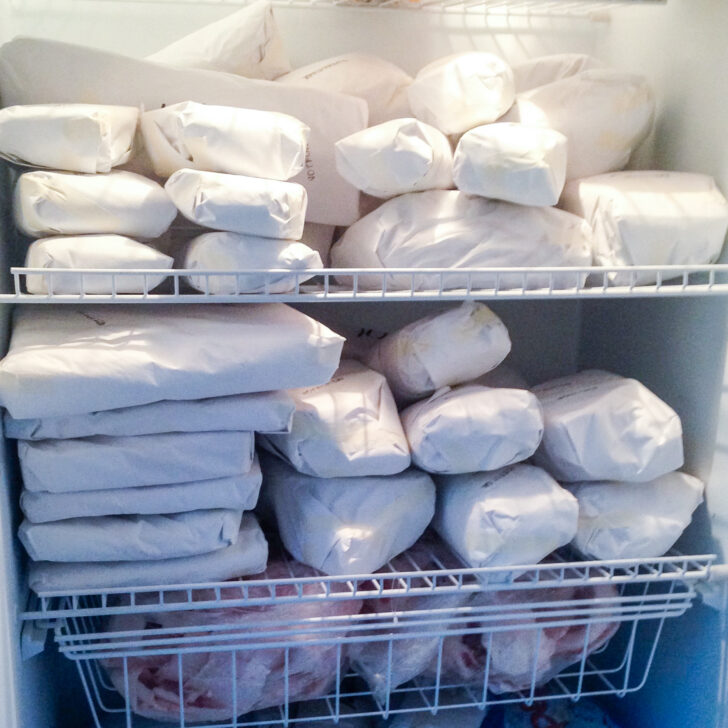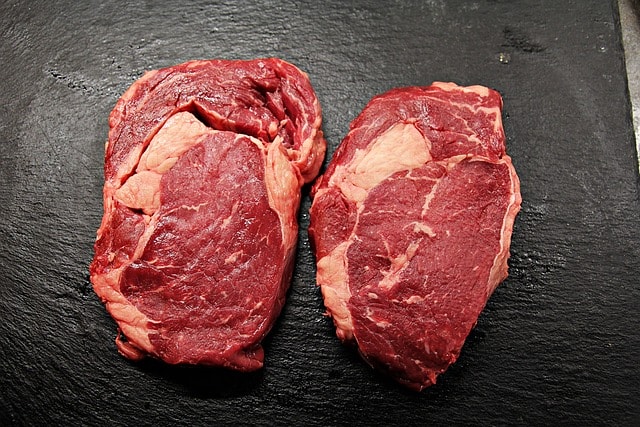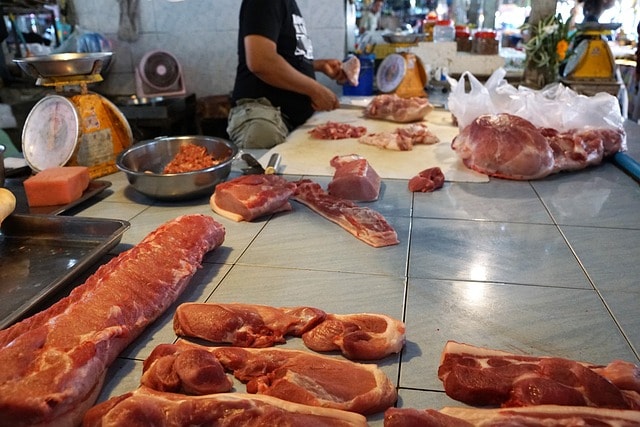Looking to hire a butcher for your homestead? Finding the right “butcher for hire” can elevate the quality of your meat and streamline your operations. This guide will help you understand the benefits of hiring a professional butcher and provide steps to find the best one for your needs. Verifying the butcher’s credentials is crucial to ensure they are a reliable and human professional, ensuring the security of your meat processing.
For homesteaders, hiring a butcher is a critical decision that impacts the quality of their meat and the overall efficiency of their operations. A professional butcher brings expertise in animal processing, ensuring that every part of the animal is used efficiently, reducing waste and maximizing value. This not only supports your homestead’s sustainability but also aligns with ethical practices in meat production.
This guide aims to equip you with the knowledge to make an informed decision, enhancing your homesteading experience.
Table of Contents

Why Should I Hire a Butcher?
Hiring a professional butcher offers significant benefits for your homestead. Their expertise ensures efficient use of the entire animal, resulting in high-quality cuts and minimal waste. This not only enhances your culinary creations but also supports sustainable living practices. Professional butchers also adhere to strict hygiene standards and food safety regulations, ensuring that the meat you consume is fresh, safe, and of superior quality.
Additionally, reputable butchers prioritize ethical and humane treatment of animals, which results in better quality meat and aligns with your values of ethical consumption. Hiring a local butcher supports small businesses in your community and allows for a personalized, consistent supply of high-quality meat. This partnership saves you time, allowing you to focus on other homesteading activities, and contributes to the local economy.
Benefits of Hiring a Butcher:
- Expertise in Meat Processing:
- Efficient use of the entire animal
- High-quality cuts and better meat handling
- Enhanced Quality and Safety:
- Adherence to hygiene standards and food safety regulations
- Proper storage and handling techniques
- Ethical and Humane Treatment:
- Gentle handling and minimal stress for animals
- Humane slaughter process ensuring better quality meat
Overall, hiring a butcher not only enhances your homesteading experience but also supports your commitment to quality, sustainability, and community values. It’s a worthwhile investment that brings numerous long-term benefits to your homestead.
Understanding Your Needs
Knowing your specific needs should be your first step before you start looking for a butcher. Here are some key considerations:
- Assess Your Livestock:
- Identify the types of animals you raise (e.g., cattle, pigs, chickens)
- Determine the quantities of each type
- Butcher Experience:
- Ensure the butcher is experienced in handling all types of livestock you have
- Frequency of Services:
- Decide how often you will need butchering services (e.g., once a year, more frequently)
- Align the frequency with your production goals
A clear understanding of these needs paves the way for procuring suitable services and guarantees efficient and effective processing of your livestock.

Researching Local Butchers
Thorough research is your starting point to find the right butcher. Here’s how to proceed:
- Identify Potential Butchers:
- Check local farmers’ markets and agricultural fairs
- Use online directories to find experienced butchers in your area
- Remember, proximity matters for timely and personalized services
- Check Credentials and Experience:
- Look for butchers with a solid track record and positive reviews from other homesteaders
- Ask for references
- Visit their butchery facilities to get a firsthand look at their operations
- Evaluate Reputation and Reliability:
- Ensure the butcher has a good reputation
- Look for consistent quality in their meat processing services
- Confirm they handle the meat with care
- Make sure they meet your standards of quality and safety
Grasping their expertise and the quality of their work is indispensable for a well-informed decision.
Evaluating Ethical Practices
Ethical consumption is incredibly important these days, especially for homesteaders who value sustainable and humane practices. When hiring a butcher, it is essential to ensure they align with these values and treat animals humanely throughout the butchering process. This means they should handle the animals gently, minimize their stress, and ensure a swift and humane slaughter process. Not only is this the right thing to do, but it also results in better quality meat.
Trust is another crucial factor. Since all the animals for butchering are provided by you, you want to be confident that the butcher will return the meat from your own animals and not swap it out for something of lower quality. Make sure they have a clear process for tracking and labeling your livestock throughout the butchering process. This transparency helps build trust and guarantees that you receive the meat from your own animals.
- Humane Treatment:
- Handle animals gently
- Minimize animal stress
- Ensure a swift and humane slaughter process
- Results in better quality meat
- Building Trust:
- Confirm the butcher returns meat from your own animals
- Ensure a clear process for tracking and labeling livestock throughout the butchering process
- Transparency helps guarantee you receive your own meat
- Full Yield Assurance:
- Make sure you get all the meat from your animals
- Clear communication and regular checks ensure no meat goes missing
- Fair Pricing:
- Charges should be based on the hanging weight of your animal
- Hanging weight is the weight after slaughter and dressing, but before cutting into pieces
- A trustworthy butcher will have a fair and transparent billing process based on this weight, ensuring accurate charges for services provided
Ensuring ethical practices and trustworthiness in your butcher is vital for maintaining the integrity of your homestead. It ensures that the values of humane treatment and sustainability are upheld, providing you with high-quality, ethically processed meat. Clear communication and transparency in the butchering process build trust and guarantee that you receive all the meat from your animals, properly processed and fairly charged.
By choosing a butcher who meets these standards, you not only support ethical consumption but also reinforce the principles of integrity and transparency within your homesteading practices. This approach not only enhances the quality of your meat but also supports a more humane and sustainable food system.
Ensuring Meat Quality and Safety
When considering butchering services, quality and security hold supreme importance. Here’s how to ensure these standards are met:
- Verify Hygiene Standards:
- Check the cleanliness of the butcher’s facility
- Inspect the butchering area, tools, and equipment
- Ensure they meet high hygiene standards to prevent contamination and ensure meat safety
- Meat Processing and Storage Requirements:
- Verify proper meat handling procedures
- Ensure temperature control is maintained
- Check for correct packaging practices
- Confirm timely delivery of processed meat
- Ensure the meat is fresh and safe for consumption
- Quality Control:
- Inquire about the butcher’s approach to quality control
- Look for regular inspections and adherence to food safety regulations
- Ensure the butcher is committed to providing high-quality services
By following these steps, you can be confident that the meat you receive is processed under the best possible conditions, giving you peace of mind regarding its quality and safety. Ensuring these practices are in place is vital for maintaining the highest standards in your homesteading meat production.
Comparing Costs and Services
For effective budgeting and planning, you need to comprehend the costs and services involved in hiring a butcher. Here’s how to navigate this process:
- Understand Pricing Structures:
- Some butchers charge by weight, ensuring you pay based on the animal’s hanging weight (the weight after slaughter and dressing but before cutting into pieces)
- Others may have fixed rates for specific services, regardless of the animal’s size
- Familiarize yourself with both pricing structures to compare options and choose the best fit for your budget
- Check Included Services:
- Determine what services are included in the price
- Additional services may include:
- Packaging and delivery
- Specialty cuts
- Curing and smoking of meats
- Custom blends of sausages
- Some butchers offer these services at no extra charge, while others might charge separately
- Clarifying these details upfront ensures there are no surprises and helps you make a well-informed decision
Knowing these details helps you plan effectively and ensure you’re getting the best value for your money. By understanding the different pricing structures and what’s included, you can select a butcher who meets your needs and budget, making the butchering process more straightforward and efficient.
Conducting Interviews and Visits
Interviews and visits constitute a vital step in the hiring process. Start by preparing a list of questions to ask potential butchers. Inquire about their work history, experience, methods, and the specific services they offer. Asking detailed questions helps you gauge their expertise and suitability for your needs.
Visiting the butcher’s facilities is equally important. Observe their practices, cleanliness, and how they handle livestock. A visit provides valuable insights that you can’t get from a conversation alone. It also allows you to verify their claims and assess their operations firsthand.
Additionally, use these visits to:
- Establish a rapport with the butcher
- Build a personal connection
- Improve communication
- Foster a more collaborative relationship
- Ensure that your expectations and needs are met effectively.
Building a Relationship
For long-term success, it’s imperative to build a strong connection with your butcher. Start by establishing clear communication. Discuss your expectations, preferences, and any special requirements you might have. Clear communication helps avoid misunderstandings and ensures that the butcher can meet your needs effectively.
Setting expectations and schedules is also important. Here are some steps to follow:
- Agree on a regular schedule for butchering services.
- Discuss any specific timelines you need to adhere to.
- This helps in planning your livestock management and ensures that you have a steady supply of processed meat throughout the year.
Learning from the Professional
Learning from their expertise is a significant benefit of hiring a professional butcher. Take the chance to observe their work and gain valuable skills. Understanding the butchering process can help you manage your livestock better and appreciate the intricacies of meat processing.
If you’re interested in participating in the butchering process, it can be an enriching experience. Some ways to get involved include:
- Taking courses or workshops offered by butchers
- Participating in hands-on opportunities to learn the process
- Volunteering at local farms or butcher shops
These experiences not only enhance your skills but also deepen your connection to your food and the processes behind it, completing a holistic understanding of your culinary course.
Finalizing the Decision
Once all the necessary information is gathered, you’re ready to finalize your decision. Start by conducting a review of contracts and agreements carefully. Ensure that all terms are clear and that there are no hidden clauses. This step is crucial to avoid any future disputes.
Once you’re satisfied with the terms, make your final choice. Confirm your decision with the butcher and proceed with the necessary steps to begin the services. Proper documentation and clear communication ensure a smooth start to your partnership, with everything proceeding as planned. After the verification successful waiting period, you can fully enjoy the benefits of your chosen services.
It’s also beneficial to have a contingency plan. In case the initial arrangement doesn’t work out as you expect, having an alternative butcher in mind can save you time and hassle. To ensure a smooth process, make a note of their ray id for easy reference.

Supporting Local Economy and Community
The benefits of hiring a local butcher include:
- Supporting local business
- Contributing to the local economy
- Sustaining small businesses
- Promoting economic growth in your community.
Moreover, building strong community ties is another significant advantage. A local butcher is more likely to understand your needs and preferences, leading to a more personalized service. Supporting local professionals fosters a sense of community and mutual support.
Final Thoughts
The decision to hire a butcher for your homestead brings with it numerous benefits. Some of these benefits include:
- Ensuring ethical practices in the butchering process
- Supporting local economies by hiring a local butcher
- Enhancing your homesteading experience with the expertise and knowledge of a professional butcher
Reflecting on the importance of this choice, it’s clear that a professional butcher can significantly enhance your homesteading experience by being able to respond to your specific needs.
I encourage you to share your experiences and insights. Every homestead is unique, and your story could inspire others to make informed decisions about their meat processing needs. Remember, hiring a butcher is not just about meat; it’s about building a sustainable, ethical, and community-focused homestead.
